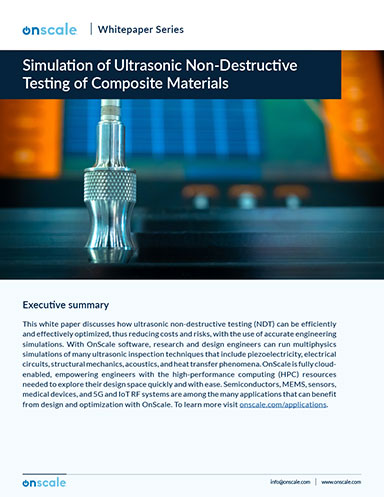Latest News
August 17, 2011
By DE Editors
National Instruments (Austin, TX) has unveiled NI LabVIEW 2011, the 25th anniversary version of its graphical system design environment for developing applications in such areas as data and signal processing, instrumentation control, test and validation system automation, and embedded monitoring and control systems. LabVIEW 2011, says the company, offers new engineering-specific libraries and can interact with the new multicore NI CompactRIO controller and the NI PXIe-5665 high-performance RF vector signal analyzer. The software also supports assemblies built in the latest Microsoft .NET Framework.

With NI LabVIEW’s graphical programming interface engineers program
with drag-and-drop, graphical function blocks rather than writing lines of code.
“Twenty-five years ago, we created LabVIEW to help engineers focus on innovating instead of wrestling with complicated programming and system integration issues, and today, it has become the ultimate system design software for measurement and control,” said Jeff Kodosky, National Instruments business and technology fellow, cofounder, and inventor of LabVIEW in a press statement. “With each new version, whether by ensuring integration with the latest hardware, introducing new libraries and APIs, or implementing engineer-requested features, our primary objective remains to increase productivity in any engineering situation.”
LabVIEW 2011 includes user interfaces with a new palette of controls and indicators, along with the ability to reuse code with support for the latest .NET assemblies, .m structures, and new Xilinx IP for the LabVIEW FPGA Module. The software is also intended to assist with wiring, editing and compiling of FPGA code, help to programmatically build and distribute executables to targets, and spawn asynchronous threads to create multithreaded applications with a new communication API.

NI LabVIEW offers advanced built-in analysis and signal processing.
NI LabVIEW 2011 incorporates numerous features driven directly from user feedback including improved block diagram readability and the ability to allow Boolean functions to accept error clusters as inputs. Other enhancements in NI LabVIEW 2011 include more than 20 new math and signal processing functions for common engineering tasks, a new asynchronous API to call and run multiple subVIs in parallel, and a new API to build, deploy, or clean build specifications.
In a related announcement, National Instruments announced LabWindows/CVI 2010 Service Pack 1, the company’s integrated development environment for ANSI C programmers in the test, measurement, and control industries who develop software to interface with hardware for collecting, analyzing, and presenting data or controlling instruments. The Service Pack upgrade is said to include bug fixes and improved stability for LabWindows/CVI 2010.

An example of a data display and user interface created with NI LabVIEW.
For more information on NI LabVIEW 2011, visit National Instruments.
Read about the new features in NI LabVIEW 2011.
Go here for pricing details on NI LabVIEW and add-ons.
Watch a guided tour of NI LabVIEW.
How to get a free evaluation of NI LabVIEW.
Read about the user-submitted features in LabVIEW 2011.
Read NI LabVIEW user stories.
Sign up and watch a video of the new features in NI LabVIEW 2011.
See why DE’s editors selected NI LabVIEW 2011 as their Pick of the Week.
Sources: Press materials received from the company and additional information gleaned from the company’s website.
Subscribe to our FREE magazine, FREE email newsletters or both!
Latest News
About the Author
DE’s editors contribute news and new product announcements to Digital Engineering.
Press releases may be sent to them via [email protected].





